| Home > Policy > White Paper, Notice, Announcement > White Paper > Japanese Government Policies in Education, Culture, Sports, Science and Technology 2002 >Chapter3 Section2.1 | ||
| (1) Situation concerning communication among children in relation to the spread of information-communication equipment |
With a background of the rapid spread of information-communication equipment such as cellular phones and personal computers (PCs), it is found from various surveys that an increasing number of children, mainly lower and upper secondary school students, use information-communication equipment as a tool for communication among them. (See Table1-3-1 , 1-3-2 ) On one hand the spread of such equipment enriches our lives, including those of children, but it also becomes a hotbed of various social problems including an easy access to harmful information, such as sex or violence, and an increase in crime victims through so-called "dating sites".
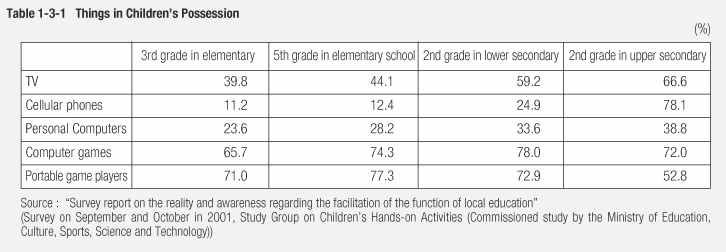
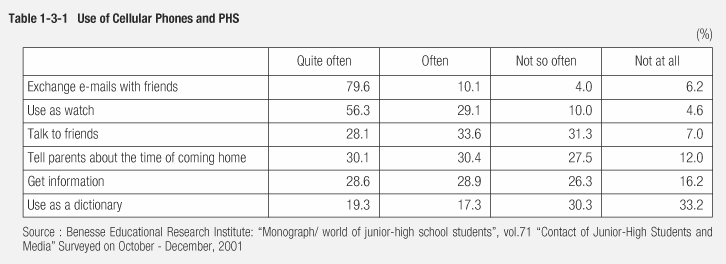
| (2) Sense of morality and justice in relation with experience in actual life and in the natural environment |
Amid remarks on the lack of opportunities and places for children to gain enough experience to foster desirable human characters and sociality, it is increasingly important to provide children with various chances to get real experience of the magnificence and beauty of nature, and to get involved in others in actual social situations, so that they can get these experiences, children grow the ability to think and act of their own volition, and they nurture the sensitivity to feel moved by beauty, and thus they are able to consider the feelings of others. Studies show that experience in actual life and in nature develops a desirable sense of morality and justice in children. (See Figure 1-3-1 )
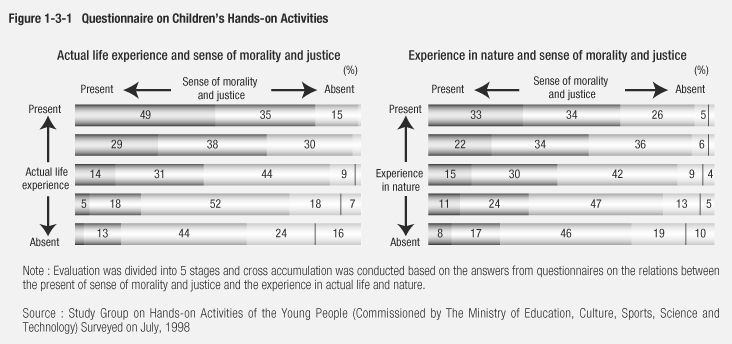
| (3) Sense of purpose and eagerness in children |
A change in children's purpose or ambition for the future has been pointed out along with the change in social circumstances and values. According to surveys, children in Japan have more negative self-esteem compared to those in the US and China. It is also found that they have lower sense of purpose and eagerness in terms of objectives for the future as well as contribution to society. (See Table 1-3-3 , Table 1-3-4 )


| (4) Problems of the generation from the view of children themselves |
According to the survey on awareness as to how children view the members of their own generation, many children see themselves as "self-centered", "not being able to control emotions", and "lacking perseverance and patience". It is clear that many children think they have not gained the social and human qualities necessary for leading an appropriate social life. (See Table 1-3-5 )
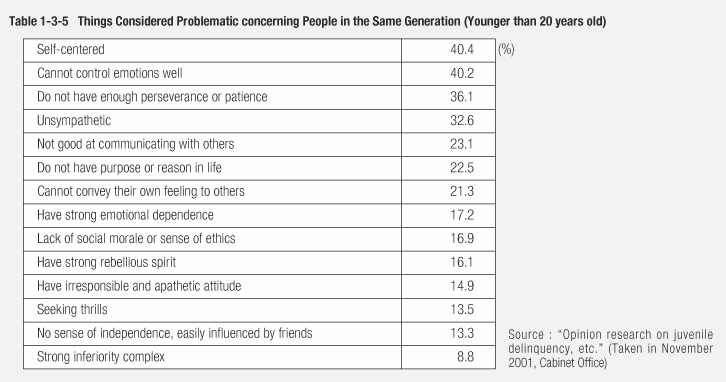
| (5) Relationship of children with others and with society |
Although these issues are points of concern, there is a survey showing present-day children do have some strong desire to understand other people's feelings. (See Table 1-3-6 )

Also, another survey indicates that, the more children are exposed to interaction with the local residents, the stronger the desire to participate in the local voluntary activities on Saturdays and Sundays. (See Figure 1-3-2 )
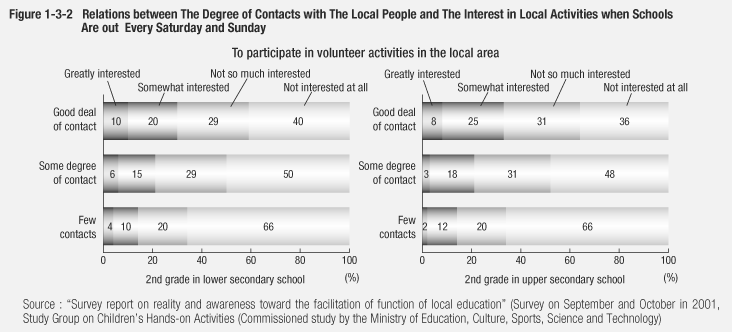
The comprehensive five-day school week has been implemented since April 2002, and it is necessary to enrich various Saturday and Sunday activities as experience in the local activities are required in view of fostering "Rich Humanity" in children.
| Back To Top | MEXT HOME |